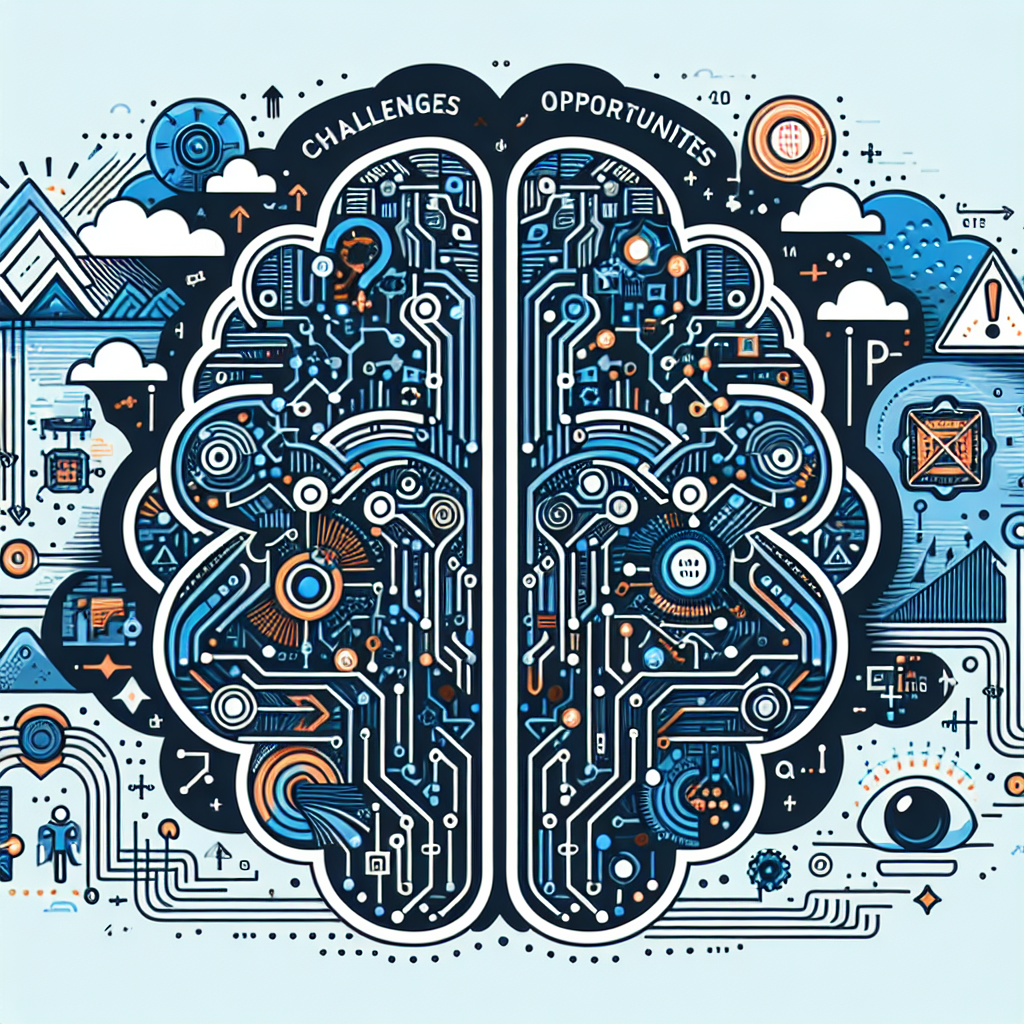Artificial General Intelligence (AGI) is the holy grail of artificial intelligence research. It refers to a level of intelligence that is on par with human intelligence, capable of understanding and learning any intellectual task that a human being can. While current AI systems excel at specific tasks, such as image recognition or natural language processing, they lack the general intelligence and versatility of human beings. Achieving AGI would revolutionize industries, society, and even the very nature of human existence. However, the quest for AGI is fraught with challenges and opportunities that must be carefully navigated.
Challenges in Achieving AGI
1. Complexity: The human brain is an incredibly complex organ, with billions of neurons and trillions of synaptic connections. Replicating this level of complexity in a machine is a daunting task that requires significant advancements in computer hardware and software.
2. Understanding the Human Mind: Despite decades of research in psychology, neuroscience, and cognitive science, we still have a limited understanding of how the human mind works. Replicating human-like intelligence requires a deep understanding of the underlying mechanisms of cognition and consciousness.
3. Ethical and Moral Concerns: AGI raises a host of ethical and moral concerns, including issues related to privacy, autonomy, and the potential for AGI to surpass human intelligence and control. Ensuring that AGI is developed and used responsibly is a critical challenge that must be addressed.
4. Bias and Fairness: AI systems are often trained on biased data, leading to discriminatory outcomes. Ensuring that AGI is fair and unbiased requires careful attention to the data used for training and the algorithms used to make decisions.
5. Safety and Security: AGI has the potential to be incredibly powerful and transformative, but it also poses risks to society if not developed and used responsibly. Ensuring the safety and security of AGI systems is a critical challenge that must be addressed.
Opportunities in Achieving AGI
1. Enhanced Productivity: AGI has the potential to revolutionize industries by automating complex tasks, increasing efficiency, and reducing costs. From healthcare to finance to manufacturing, AGI has the potential to transform how we work and live.
2. Scientific Discovery: AGI could accelerate scientific discovery by processing vast amounts of data, identifying patterns and trends, and generating hypotheses. AGI could help researchers make breakthroughs in fields such as medicine, climate science, and astrophysics.
3. Personalized Services: AGI could revolutionize how we interact with technology by providing personalized services tailored to our individual needs and preferences. From virtual assistants to personalized healthcare recommendations, AGI could enhance our daily lives in countless ways.
4. Creative Innovation: AGI has the potential to unlock new forms of creativity and innovation by generating novel ideas, designs, and solutions to complex problems. AGI could help artists, designers, and engineers push the boundaries of what is possible.
5. Empathy and Understanding: AGI could help us better understand and empathize with others by analyzing and interpreting human emotions, behaviors, and intentions. AGI could help us bridge cultural divides, foster understanding, and promote peace and cooperation.
FAQs
Q: What is the difference between AGI and narrow AI?
A: Narrow AI refers to AI systems that are designed to perform specific tasks, such as playing chess or recognizing images. AGI, on the other hand, refers to AI systems that have general intelligence and can perform any intellectual task that a human can.
Q: How close are we to achieving AGI?
A: While significant progress has been made in AI research, achieving AGI is still a distant goal. Researchers estimate that it could take decades or even centuries to develop AGI, depending on the rate of technological advancements and research breakthroughs.
Q: What are the ethical concerns surrounding AGI?
A: Ethical concerns surrounding AGI include issues related to privacy, autonomy, bias, safety, security, and the potential for AGI to surpass human intelligence and control. Ensuring that AGI is developed and used responsibly is a critical challenge that must be addressed.
Q: How can we ensure that AGI is developed and used responsibly?
A: Ensuring that AGI is developed and used responsibly requires a multi-faceted approach, including ethical guidelines, regulatory frameworks, transparency, accountability, and public engagement. It is essential to involve stakeholders from diverse backgrounds in the development and deployment of AGI.
Q: What are the potential benefits of AGI?
A: The potential benefits of AGI include enhanced productivity, scientific discovery, personalized services, creative innovation, and empathy and understanding. AGI has the potential to revolutionize industries, society, and even the very nature of human existence.
In conclusion, the quest for AGI represents a monumental challenge and opportunity for humanity. While achieving AGI will require overcoming significant technical, ethical, and societal challenges, the potential benefits are vast and transformative. By approaching the development of AGI with care, responsibility, and foresight, we can harness the power of artificial intelligence to enhance our lives, broaden our understanding of the world, and shape a more equitable and inclusive future for all.

